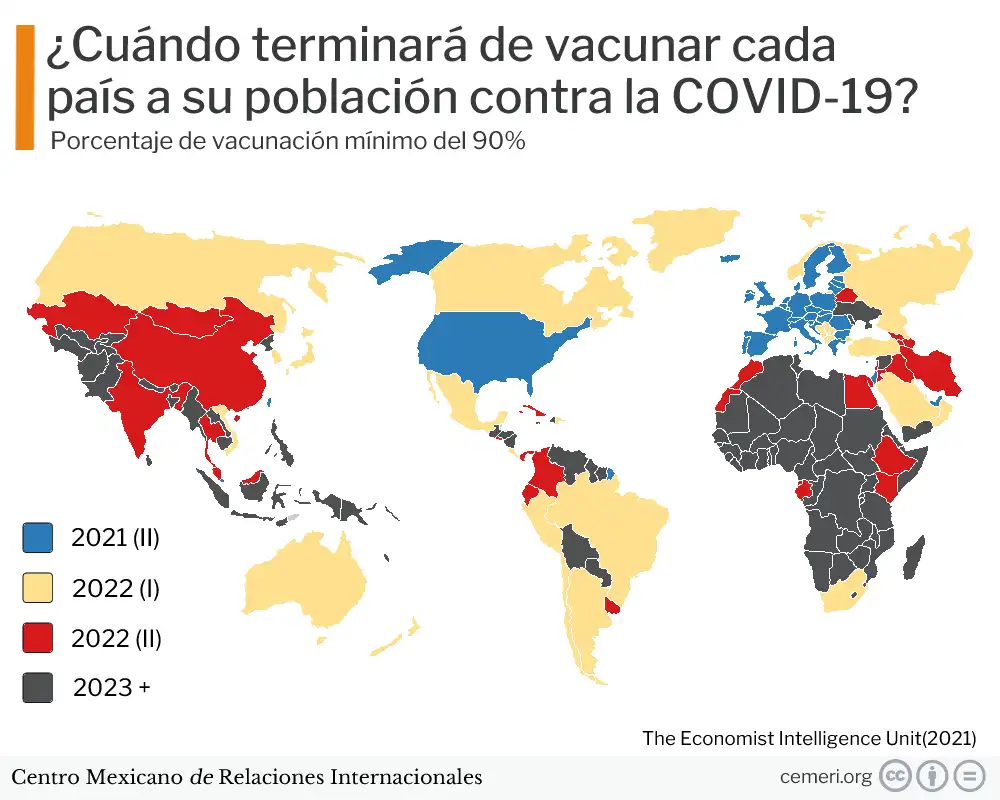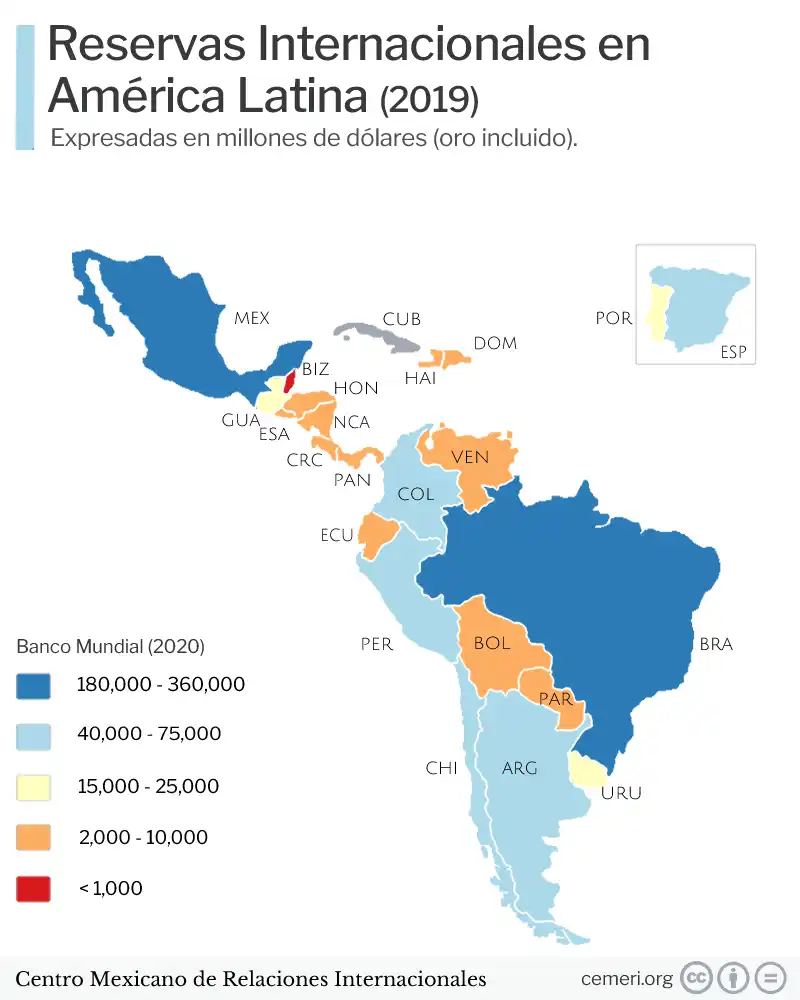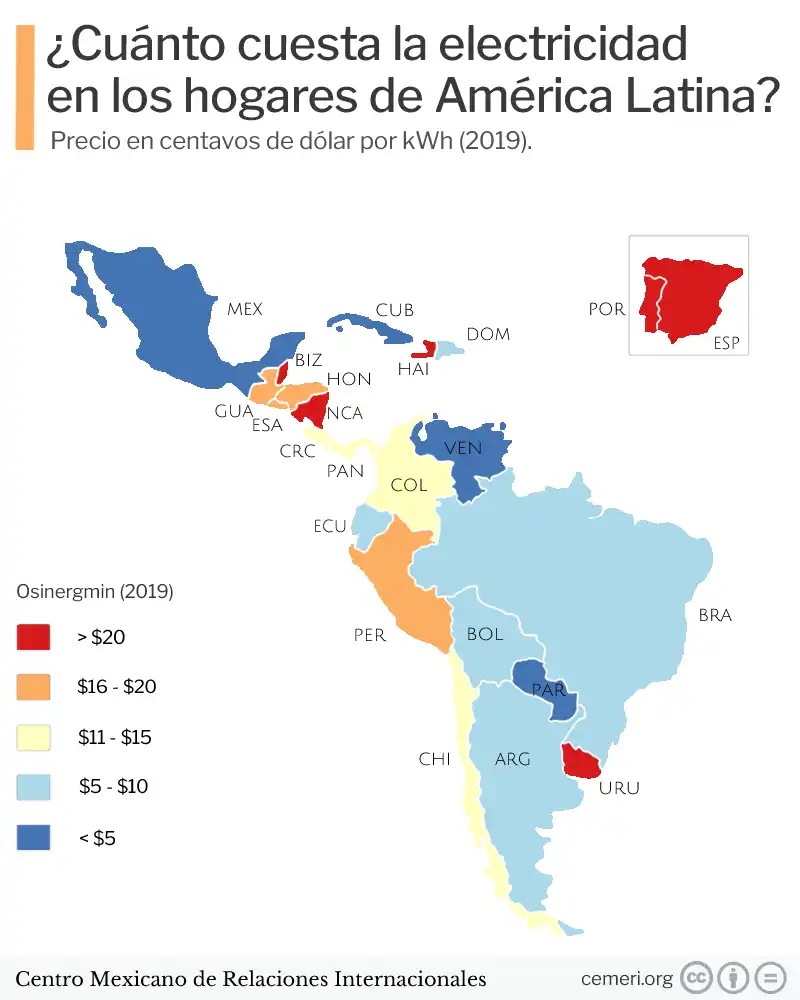Map
Luis Salgado
When will each country finish vaccinating its population against COVID-19?
- Unsurprisingly, some controversy and debate has already arisen around inequality.

Despite the fact that different vaccination campaigns have already begun in developed countries, it will take time to achieve mass immunity. The main obstacle is production, this because several countries have set aside more doses than they need. In addition, the prices associated with vaccination and immunity programs will be high, especially for developing countries whose finances are more limited. Additionally, diplomacy will play a very important role and for this reason the term “vaccine diplomacy” has been coined. For example, Russia and China will try to make the most of their status as donors of vaccines.
Last year (2020), governments around the world had to resort to lockdowns and social distancing to try to control Covid-19. In some cases this strategy gave successful results, although not for the majority of countries. That is why the plan for 2021 is to put a definitive strategy on the table through vaccination and immunization programs. Proof of this is the fact that these campaigns began so soon once some vaccines were endowed with emergency approval status.
Countries like Israel, Bahrain, and the United Arab Emirates find themselves slightly ahead in this vaccination race, perhaps largely because of the size of their populations. Other countries such as the United Kingdom, the United States and the European Union are very close to the lead. Some other developed countries have not started their vaccination programs against Covid-19. Such is the case of Japan, for example, which will not begin until the end of February.
As expected, some controversy and debate has already arisen around inequality within these vaccination campaigns. Even before they started, certain leaders questioned the UK's "slow" emergency approval of certain vaccines. In addition to this, the British plan to delay the second dose necessary for certain vaccines in order to "take advantage" of the limited amount of vaccines you would receive was also criticized. On the other side of the world, in Indonesia, the debate revolves around the national plan to give preference to people of working age over the elderly population.
The controversy also revolves around the demand and supply of vaccines. Even with the great cooperation engine derived from the pandemic, the supply and production of vaccines will remain eclipsed by the overwhelming global demand. Such a situation could continue like this for at least the next semester. In addition, the fact that the most developed countries have monopolized a large volume of vaccines is added. Of the twelve billion doses planned by major pharmaceutical companies, six have been pre-ordered by "rich" countries. Canada, for example, has ordered a sufficient quantity to vaccinate its population 5 times. While Israel, on the other hand, has paid much more than the stipulated price in order to be among the first to purchase the Pfizer vaccine.
Finally, within the remaining doses, a contest will arise between developing countries whose economic situation has been hit by the Covid-19 pandemic. And it is that the cost of vaccines is not reduced only to the dose itself, but other derived expenses must be considered, such as transportation, distribution, salaries of medical personnel, among others. Additionally, there is a risk that current vaccines will not be fully effective against future mutations of the virus. The Pfizer and Moderna vaccines, due to their chemical structure, are easy to modify to deal with new variations of Covid, but in such a scenario it would be necessary to start new vaccination campaigns that would end up emptying the coffers of a large number of countries.
Sources
The Economist Intelligence Unite (2021). Consultado en economist.com el 04 de enero de 2021.

